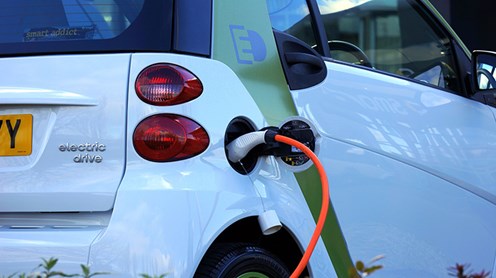I recently spent a week in Glasgow during the COP26 Climate Change conference. Overall, I left the city optimistic about the diverse range of businesses and organisations that are committed to working together to deliver the transition to a Net Zero economy.
 In 2007, I attended each session of the Parliamentary Committee that scrutinised the legislation that first made the UK’s climate change targets mandatory. I felt then that too many businesses wanted to be granted an exception from the targets and it left me feeling sceptical that business leaders really understood the implications of climate change. Now, the vast majority of sectors are accepting responsibility and rising to the challenge. I’m proud that this includes our sector, coming together to agree the ABI’s Climate Change Roadmap.
In 2007, I attended each session of the Parliamentary Committee that scrutinised the legislation that first made the UK’s climate change targets mandatory. I felt then that too many businesses wanted to be granted an exception from the targets and it left me feeling sceptical that business leaders really understood the implications of climate change. Now, the vast majority of sectors are accepting responsibility and rising to the challenge. I’m proud that this includes our sector, coming together to agree the ABI’s Climate Change Roadmap.
The challenges ahead remain daunting, not just in the UK where many homes will be at ever-increasing risk of flooding and other weather-related risks, but internationally. The urgency of the issue struck home when the President of Barbados spoke movingly about how failing to prevent a 2°C global temperature rise was a death sentence for his island, while the UN has recently forecasted that Madagascar is likely to experience the world’s first ‘climate change famine’.
However, during my time in Glasgow, I was struck by an ongoing gap between the certainty climate experts have about what technologies and changes are needed and the uncertainty among ordinary citizens about their role in reducing carbon emissions.
This was a theme that came out strongly when Lucy Farrow, who has been leading Britain Thinks’ Net Zero diaries, chaired a session the ABI hosted jointly with the Scottish Government on how our sector can help consumers adapt. A growing number of people are taking a close interest in climate change and are making major changes to their lifestyles as a result. However, for the wider public, they will still prioritise cost and convenience over sustainability and they believe more emphasis should be placed on what private companies are doing.
Yet, there is no simple trade off between actions taken by Governments and businesses and the actions taken by individuals. The transition to zero emission vehicles and energy efficient homes form key planks of the UK Government’s Net Zero strategy. But, however effective the technologies and however compelling the business case for investment is, these strategies will not succeed unless individuals feel confident they can manage the disruption that comes with making the switch.
Our sector should look at this as an opportunity. A core reason for providing home or motor insurance products is to help people cope with the disruption that comes when they unexpectedly need their car or parts of their home repaired. Although the disruption that could come from the Net Zero transition won’t be as unexpected as a motor crash or a leaking pipe, our sector’s experience can still be central to providing the help people will need. I hope that, in the coming years, the help an insurer can provide with switching to Net Zero will become one the main selling points for these products.
In particular, the point at which someone makes an insurance claim could become a key opportunity to make the switch. If someone needs a new vehicle after a ‘total loss’ claim or a new heating system after a major leak, that should be an opportunity to introduce sustainable choices. If this isn’t available, it could be many years before that customer would be willing to consider changing their vehicle or having major works in their home again.
Yet, we cannot underplay the major challenges that still exist before such a model could operate. There is not yet the network of skilled engineers we need to install and maintain these technologies, while the costs remain high. While there are indications that the price of electric vehicles or heat pumps will come down as these sectors scale up, it will be many years before most consumers could consider them without significant public subsidy. Having recently explored what I would need to do to bring my own home up to EPC Level 3, I’ve concluded that the costs are simply too daunting and this will have to be a problem whoever next owns my home inherits.
The ABI will continue to highlight these challenges and explore ways to work with other parts of the economy to overcome them. But there is plenty we can do in our sector – including new product options and different types of cover, looking at the sustainability of our supply chain and embracing opportunities to use recycled ‘green’ parts in home and motor repairs. The more consumers understand our sector’s green credentials, the more they will trust us to help them with the bigger sustainability challenges that are to come.
This will be the focus of the afternoon breakout session, 'The green transition: the role of General Insurers in helping society adapt to a low-carbon economy', at the ABI’s Annual Conference – where we will have the opportunity to learn from ABI members who are already introducing innovative solutions in this area and to explore how we can overcome the challenges that will otherwise hold back our efforts.
